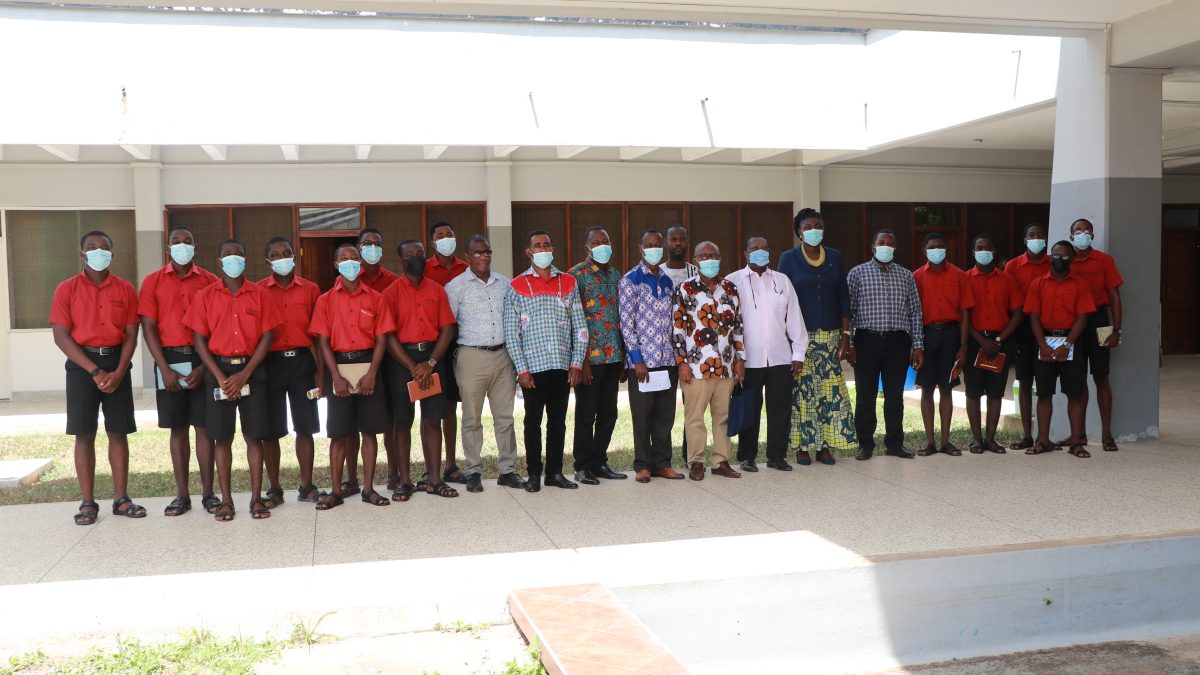- Login to ASPnet | Ghana Commission for UNESCO | Government Agency Responsible for the coordination of Ghana's contributions to and presence at UNESCO
International Day of Light 2021 observed at Cape – Coast

The Ghana Commission for UNESCO, the Laser and Fibre Optics Centre (LAFOC) of the University of Cape Coast and the Head of State Award Scheme (HoSA) on Wednesday, 19th May, 2021 jointly organized a symposium (in both presentia and virtual mode) and an exhibition on light and the contribution of the technologies of light to life to celebrate the International Day of Light.
This is the first time since 2018 that the celebration of the day has been held outside the capital, Accra.
The symposium took place at the Academic Board Chamber at the School of Physical Sciences while the exhibition was held at LAFOC, University of Cape Coast. The activities were carried out under strict compliance of the COVID-19 protocols.
Participants at the symposium were graduate students from the University, Researchers, Lecturers, teachers and students.
Declaring the day launched, the Vice Chancellor welcomed the participants and paid tribute to the gallant men and women who worked tirelessly to ensure the proclamation of the day.
In her address, the Secretary-General of the Ghana Commission for UNESCO Mrs. Ama Serwah Nerquaye-Tetteh expressed her joy that the symposium was backed by an exhibition to show the young students how light is being applied to solve the world’s problems which include pollution in all its forms. She expressed her hope that the students, after passing through the exhibition, will appreciate light better and make meaningful lives out of what they observed for a better world tomorrow.
The Patron of the Head of State Award, Mr Benjamin Cobblah, in his address expressed his appreciation to the Ghana Commission and LAFOC for the fruitful collaboration and indicated that his organisation will be embarking on a national STEM programme and hoped for further collaboration in the roll-out of the STEM Project for the the promotion of Science in Ghana.
Speaking on the theme ‘Light is Life’, Prof. Paul Kingsley Buah-Bassuah, the foundation Coordinator of LAFOC made a presentation giving an account of how Ghana, together with Mexico, New Zealand and the Russian Federation was able to convince member states of uNESCO in 2013 to declare 2015 as the year of Light and in 2017 called upon UNESCO’s member states to declare 16th May every year as International Day of Light.
Prof. Sune Svanberg from Lund University, Sweden made a presentation on ‘Laser spectroscopy applied to the environmental, ecological and medical areas’. He explained practical approaches in the application of lasers in solving real life problems.
Background
Following the proclamation of an International Day of Light by UNESCO to be celebrated on 16th May every year, Ghana together with partners in this field have always commemorated the day .
The proposal was sponsored by Ghana, Mexico, New Zealand and the Russian Federation, and supported at the UNESCO Executive Board and the General Conference by 27 other countries.
The purpose of the Day is to provide an annual focal point for the continued appreciation of the central role of light in the lives of the citizens of the world in areas of science, culture, education, sustainable development, and in fields as diverse as medicine, communications and energy. The broad theme of light is to allow many different sectors of society to participate in activities around the world that will raise awareness of science and technology, as well as art and culture and their importance in achieving the goals of UNESCO in promoting education, equality and peace.
This year’s celebration is expected to continue raising awareness of the day; educate participants on light and light-based technologies; and give hands-on experience of gadgets on light and light-based technologies.
